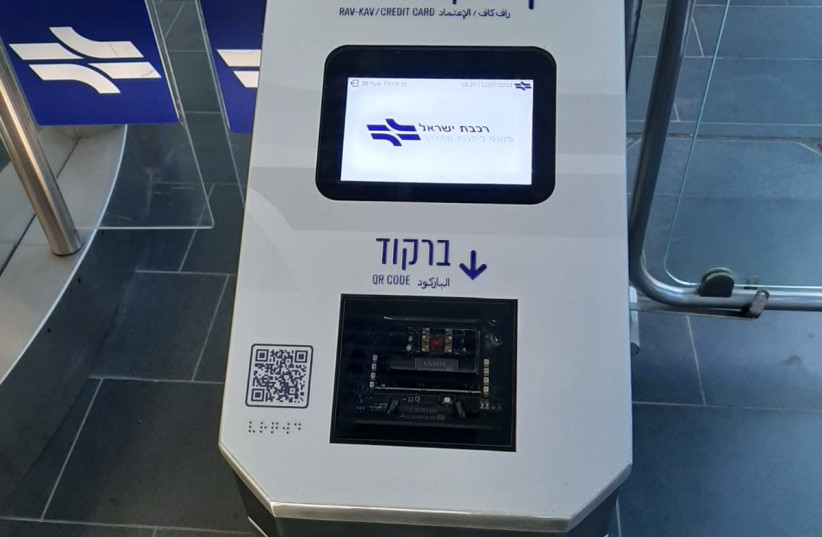A return trip to the train from Jerusalem

According to data published by the Central Bureau of Statistics, during the fourth quarter of 2018 a total of 409,580 passengers traveled from Jerusalem to Ben-Gurion Airport.
The train ride from Navon Station in Jerusalem to Tel Aviv takes 30-45 minutes (depending on the specific destination in Tel Aviv), and on regular weekdays about 35 trains depart Jerusalem for Tel Aviv. Navon Station was opened in September 2018, offering transit to Ben-Gurion Airport, and passengers who wished to travel to Tel Aviv had to change trains (today one can travel as far as Herzliya without having to change trains).
According to data published by the Central Bureau of Statistics in its Transport Statistics Quarterly, during the fourth quarter of 2018 a total of 409,580 passengers traveled from Jerusalem to Ben-Gurion Airport, with some of them continuing to Tel Aviv. In the same quarter, for the sake of comparison, Israel Railways’ busiest section, Tel Aviv-Binyamina, had a total of 3,328,780 passengers, in addition to 2,794,270 on the Tel Aviv-Haifa section. That same quarter saw a total of 420,010 passengers along the old route between Jerusalem and Tel Aviv (some only traveled a portion of this route, for example between Tel Aviv and Beit Shemesh).
Over the following five quarters, until the outbreak of the pandemic, the number of passengers traveling the Jerusalem-Tel Aviv section continued to rise, reaching a total of 752,960 in the first quarter of 2020 (when the pandemic began). During this quarter it was already possible to travel as far as Hahagana Station in Tel Aviv without changing trains. The Tel Aviv-Binyamina section, by comparison, had a total of 2,451,880 passengers during that quarter.
The second quarter of 2020 saw the suspension of passenger transport, which came to a complete halt in April-May.
Passenger transport resumed during the third and fourth quarters of that year, and it appeared that passengers were returning to the train, although not in the numbers that had characterized the start of the year. In the fourth quarter of 2020 a total of 352,800 passengers traveled the Jerusalem-Tel Aviv section (via Ben-Gurion Airport) – that is 53% fewer passengers than the figure for the first quarter of that year. The Tel Aviv-Binyamina section has seen a slower return, with 944,760 passengers in the fourth quarter of 2020, a 61% drop relative to the first quarter. In fact, with the exception of the Dimona-Beersheba section, which has fewer than 1,000 passengers per month, the Jerusalem-Ben-Gurion Airport-Tel Aviv section has recovered faster than any other Israel Railways section.
The first quarter of 2021 saw a decline in the number of passengers on almost all railway sections. The number of passengers on the Jerusalem-Ben-Gurion Airport section declined from 352,800 to 338,800. The rate of this decline – 4% – is lower than the decline rate in the number of train passengers in Israel during the same quarter – 16%.
Jerusalem Post Store
`; document.getElementById("linkPremium").innerHTML = cont; var divWithLink = document.getElementById("premium-link"); if (divWithLink !== null && divWithLink !== 'undefined') { divWithLink.style.border = "solid 1px #cb0f3e"; divWithLink.style.textAlign = "center"; divWithLink.style.marginBottom = "15px"; divWithLink.style.marginTop = "15px"; divWithLink.style.width = "100%"; divWithLink.style.backgroundColor = "#122952"; divWithLink.style.color = "#ffffff"; divWithLink.style.lineHeight = "1.5"; } } (function (v, i) { });

